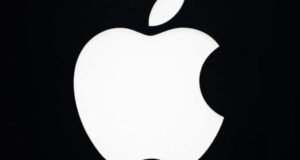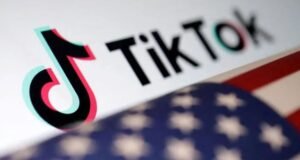
The International Collegiate Programming Contest (ICPC), held in Dhaka in November, attracted young computer talents from all over the world.
ICPC is an annual multi-tiered programming competition among universities around the world. As the 4th Asian country to host the event after China, Japan and Thailand, Bangladesh has proven its capacity to host such a global event.
The United States’ Massachusetts Institute of Technology (MIT) has won the 45th ICPC global finals held in Dhaka at International Convention City Bashundhara, while Peking University from China took second place.
More than 1,000 programmers participated in the programme, including students, teachers, coaches, and patrons.
Third place was awarded to the University of Tokyo from Japan, while fourth place was given to Seoul National University from South Korea.
A US-based foundation hosted the finals of the 45th edition of the global event in association with the Bangladesh Computer Council (BCC), University of Asia Pacific (UAP), and Huawei.
Bangladesh University of Engineering and Technology ranked 51st overall among 137 teams of university students from 69 countries.
Other ranks of Bangladeshi universities include Shahjalal University of Science and Technology (56th), University of Dhaka (82nd), Jahangirnagar University (98th), North South University (107th), American International University Bangladesh (113th), University of Asia Pacific (119th) and Rajshahi University of Engineering and Technology (122nd).
State Minister Zunaid Ahmed Palak said the ICPC World Finals were a great opportunity to showcase students’ abilities in information and communication technology (ICT).
“We have made a lot of progress in the ICT sector in the past 13 years. Thirteen years ago, there were only 5 million internet users, but now there are 130 million. There was no ICT industry 13 years ago, and technology exports were only $26 million. It currently amounts to $1.4 billion a year from software, hardware, and services.”
In response to the developments, ICPC President Bill Poucher said technology evolves every ten years, and the ICPC promotes the creativity of computing talent for societal advancement.
According to him, “Computer science by nature creates services. We build infrastructure for people while building trust is essential for services.”
“Bangladesh hosted the ICPC for the first time, which is a great opportunity for young computer professionals. Huawei is excited about hosting the competition in Bangladesh as a partner of ICPC,” Vicky Zhang, Huawei’s vice president of corporate communications, told the Daily Sun.
Huawei recently launched an ICT academy in Bangladesh where teachers will receive training on the latest technologies.
“We have a partnership with one university here, as my colleague here told me. Huawei will train teachers who will spread knowledge to students later. There will also be online courses for students where they can take online exams. The certification will help them showcase their skills,” she said.
A tech talk entitled ‘Road to Intelligence’ was conducted by Huawei for ICPC students who showed keen interest in the topic. Some 126 teams and 39 coaches have submitted their solutions to this challenge.
Huawei officials congratulated the 12 winning teams and 12 coaches, who are always striving to reach new heights.
Vicky believes that tech-savvy, change-resilient young talent deserves every chance to succeed.
“The next decade will witness an exponential increase in information technology. Our top scientists and researchers are working together to realise an all-connected intelligent world where people and society will accelerate digital development. By improving information perception, integrating information, and developing intelligent computing capabilities, the future will be healthier, happier, more convenient, and free,” Vicky Zhang stated.
These advances will lead to ubiquitous autonomous driving, autonomous flying, home robots, factory robots, farm robots, and hospital robots. These advances are highly dependent on the pace of scientific and technological progress, as well as intelligence and creativity.
In order to support talent pools in the technology sector, Huawei has been conducting the ‘Seeds for the Future’ programme in Bangladesh.
“Similar to Huawei’s Seeds for the Future advocacy, we are dedicated to ensuring young talent has access to the necessary skill sets and mindsets to successfully navigate a fast-changing world. In addition to providing our talented young people with the best STEM opportunities possible, we wish to help them achieve their dreams and contribute to the world.” Vicky Zhang said.
The acronym STEM stands for science, technology, engineering, and math, with an emphasis on innovation, problem-solving, and critical thinking.
As part of its commitment to open research platforms oriented towards the future of information terminals, computing, and connectivity, Huawei continues to support ICPC. Huawei will delicately create opportunities for the next generation of problem solvers to explore challenging subject areas that advance science and technology, and propel industry forward to meet tomorrow’s needs.
In addition to supporting the World Finals, Huawei also hosts training events, sponsors international tech contests, and provides professional coaching and other resources to the international contest community.
During 2022, Huawei has held three training camps, including two on-site camps in Shangnhai and Wroclaw in Poland, as well as an online marathon challenge for students to test their skill level and practice more.
According to the official, Huawei will continue providing firm and unswerving support to ICPC and open up our research platforms worldwide in order to provide all people with access to the most challenging problems in the technology sector.
 Weekly Bangla Mirror | Bangla Mirror, Bangladeshi news in UK, bangla mirror news
Weekly Bangla Mirror | Bangla Mirror, Bangladeshi news in UK, bangla mirror news







